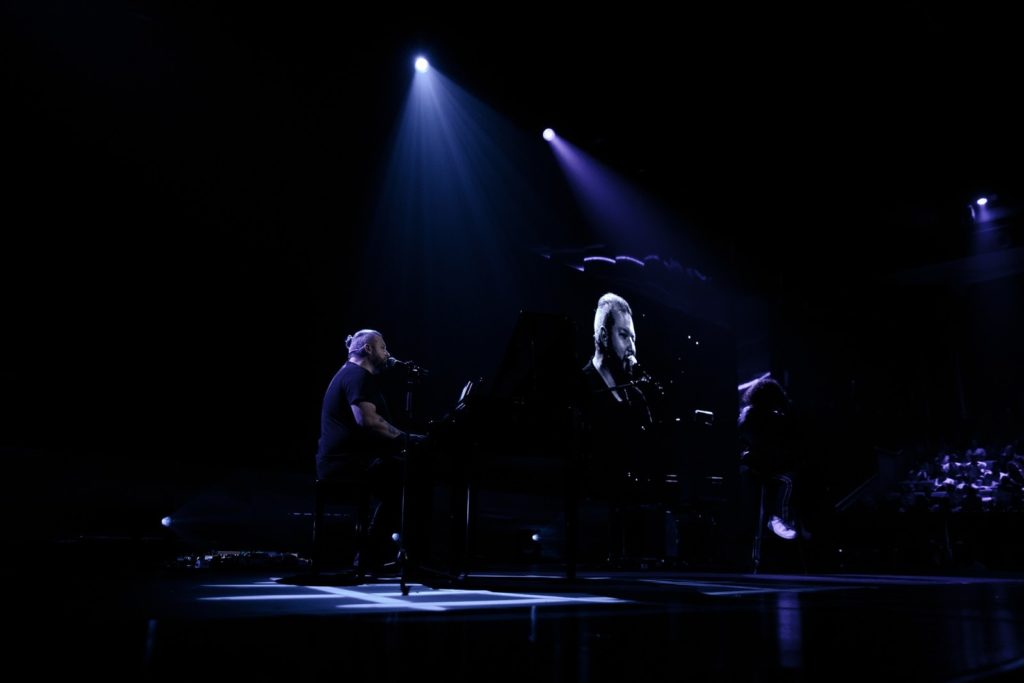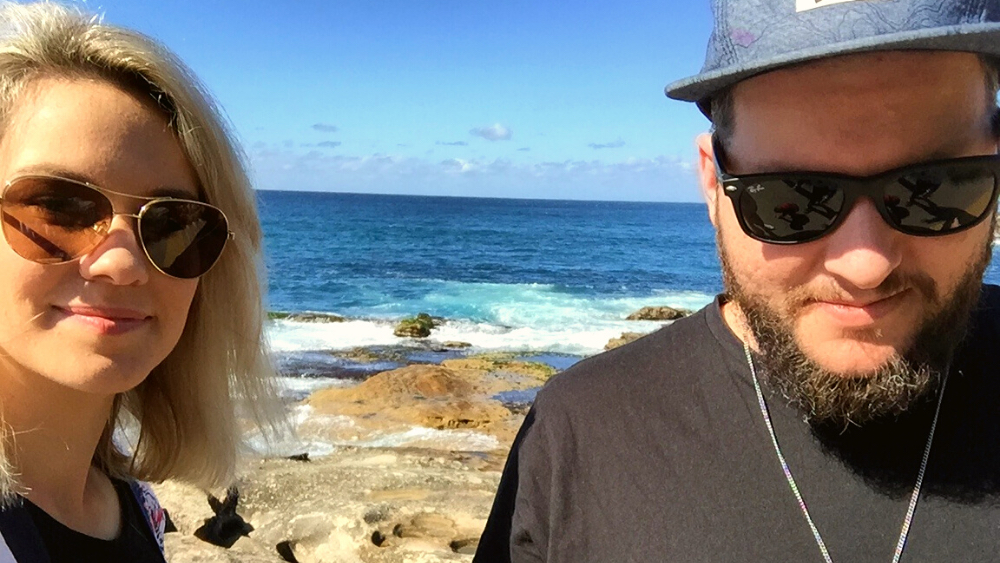The death of our baby girl changed my view of God
WARNING: This story contains references to the death of a baby.
It was just before Christmas in 2014. My wife Kellie had been carrying our daughter in the womb for nine months and was ready to give birth at any moment. I had just come back home from a gig when Kellie called me into the lounge room to come and wake up our daughter.
Kellie hadn’t felt her move for a bit and it was not normal that she would be so still.
So, we popped up to the hospital, just to check on her. Once we started to get instruments attached to Kell to see what our girl was up to, we discovered that we couldn’t find a heartbeat.
We began pleading with doctors, as well as pleading with her to wake up, for this to be a bad dream. We pleaded with God to show up in miraculous ways that we had heard about all throughout our church upbringing.
But this isn’t a story of miraculous turn around. This is the story of us having to bury our daughter, Emme Grace Andrew, and lay her tiny white coffin in the ground. And sob as the weight that no parent should ever face, became our reality.
The loss was profound. Not only did we lose a daughter and her right to the chance to grow up, to take first steps, to laugh, to love, to be invited to her first dance, these embodied joys and pains, we also lost our framework of a God who always came through if you just prayed hard enough. If you believed the right things. If you said the right magic words in our petitions.
I remember being alone, contemplating this lostness, feeling adrift in a universe that I no longer knew, nor cared for.
I lost my god in the sky. But God found me in the trenches.
Staring upwards into the heavens, I fired my disappointments, my ‘how dare you’s’, my heartache and brokenness. I fired my insults at the divine, at a God who I felt was left wanting.
My conception of God had largely been … a formula of cause and effect. An algorithm of faith formulations that, if evoked in the right way, would yield the results I desired. It’s a formula that I loved, and felt great emotion for, but a formula none the less.
As I hurled insults into the sky, I didn’t see the clouds part. I didn’t feel a divine rebuke on its way. I felt a sigh, an exhalation… watching my conception of a formulaic god drift away like the clouds.
I was left with a blank canvas – and I think it was with this blank canvas that I finally allowed God the space to create a ‘Genesis Week’ in me [as referred to in Psalm 51.10, MSG].
In that sigh, in that lostness, I lost my god in the sky. But God found me in the trenches.
I’d like to say he healed every broken heart, plastered every crack, but that’s not the case. But I discovered in my pain, a God that also suffered. That he too was a father who had suffered. And that this God wasn’t a magician, but he was a constant comfort in times of trial.
He wasn’t distant; ours was a close God. He wasn’t distant from our pain, he grieved with us. We discovered this God in the faces of the people who came to the hospital and sat with us, who held her earthly body, and lamented with us.
We discovered God in the mess and the pain as people showed up to help us get through a completely unfamiliar experience in the coming months.
Why did we lose Emme? Why her? Why us?
It hasn’t been easy, and it hasn’t been comfortable, and it hasn’t been a story of perfect faith. It’s been a wrestle.
Why did we lose Emme? Why her? Why us? All these questions are ones we don’t have access to. But in our brokenness, we saw God with just a little more clarity – not as a divine cash register, but as a ‘personhood’ who grieves with us and suffers with us.
Our ‘Genesis Week’ is not a story of completeness, it’s a story of the process. It’s not a destination, it’s a road we now walk on. God’s not a formula, he’s the very ground of our existence.
And guess what? Because he’s not a formula, sometimes we don’t have the answers. But that is why we create; as artists; we don’t trade in answers, we trade in better questions.
As artists, we move in the symbolic, in the pre-verbal; we move in the painting and the melody. We move in the poetry where collisions of previously unrelated words take on a fresh new metaphorical meaning and songs speak to people in a thousand different ways.
We don’t have answers, but we have a suspicion. We don’t have a definition; we have a chord.
This world often makes no sense. It makes no sense that parents bury their children. But we have this suspicion … I like to call it a Hope. We have this hope, that one day all that is lost and broken will be found and restored. That the current direction of the world, spinning towards death and entropy, will one day be reversed as the earth will be filled with the knowledge of the glory of the Lord, as the waters cover the sea.
When we create things that are beautiful, they aren’t kitsch and cute. They are an anticipation of the reality of the Kingdom of Heaven.
Beauty is not a pretty pursuit; it is the rebellion of entropy. It’s a prophetic statement, that while we have fleeting moments of beauty in this world, one day this will be the all-consuming reality. That the lost will be found. That the broken will be restored. That those in captivity will only know freedom. That division will be eclipsed by unity. That we who are a mess now, will be remade whole.
So, while we feel the crushing weight of suffering, our art rebels against this, confessing: “There’s a healing light, just beyond the clouds. Though I’ve walked through fire, I see clearly now.”
David Andrew describes himself as “a musician who makes people dance, find rest and deal with existential dread”. He is a singer songwriter with a new album called Ghosts and he co-wrote the Gang of Youths’ song Persevere which describes another aspect of his experience of their family losing daughter Emme that is discussed in this article. He’s also the producer and co-host of the Inverse Podcast with Jarrod McKenna.
* If you have been impacted by the death of a child, contact SANDS (1300 072 637), Beyond Blue (1300 22 4636) or Bears of Hope (1300 11 HOPE).

David Andrew first shared this version of his story of losing Emme at Hillsong’s Worship and Creative Conference. Hillsong Church


